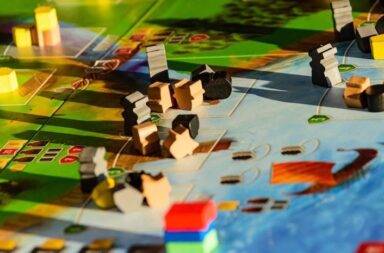Gambling addiction can take many forms: lotteries, slot machines, bingo, scratchcards. According to the DPBOSS, 81% of Quebecers have participated at least once in their life to a game of chance and money. And if the aim of this activity is above all recreational, it is estimated that at least 5% of the population experiences a gambling problem and that 2% would be dependent on it.
How do you get obsessed with betting?
When we play games of chance, it is essential to winning. The problem is that we have no control over the gains and losses that result.
However, even if we are rational, the emotions still take over. Indeed, we tend to remember more the money won than the lost.
The famous beginner’s luck gives rise to a feeling of euphoria that pushes us to play more since we see ourselves as lucky and skillful. Unfortunately, the phases of loss quickly and inevitably take over. Convinced that they can redo and that luck will turn, this is how the player develops an addiction to the game.
Recognize the signs
Some clues can help those around pathological gamblers to detect gambling addiction.
- The lie
People affected by gambling problems try by all means to hide it from their loved ones.
- Wanting to redo
Even if problem gamblers lose a lot of money, they are certain that their luck will turn.
- Always bet more
The pathological player increases his bet to increase his feeling of excitement and well-being. He is convinced that by betting big, he will win more.
- To borrow money
The pathological gamer is convinced that money is not lost irretrievably. He then borrows some from his entourage to continue playing.
- Play to forget
The more he loses, the more the addiction to gambling becomes a source of stress. The player then thinks that this entertainment will change his ideas and help him solve his problems.
- Play by need
When a player tries to reduce or stop betting, he experiences psychological withdrawal symptoms.
- Fly to play
Pathological players accumulate significant losses of money. When they can no longer borrow it from their loved ones, they often have no other choice than to obtain it otherwise, sometimes pushing them to act illegally.
- Play is more important than anything
The life of pathological players no longer turns around the game. They abandon their careers, their loved ones, and all of their activities. Their daily life is then dominated by the only thing: to play.
The impacts of pathological gambling
According to the Health and Social Services Agency, between 10 and 17 people are affected by one person’s gambling addiction. When the DBPOSS Satta, you become addictive, it has many negative impacts on the player’s life, but also on that of those around him.
How to get out of it?
Very often, awareness comes too late, when the players have hit rock bottom, and they have already lost everything. They rarely ask for help because they want it, but rather because they have run out of resources and are in distress.
Conclusion: Although many measures have been put in place to prevent addiction to gambling, the number of people affected is still growing steadily, in particular, because of the increase and accessibility of the offer.


